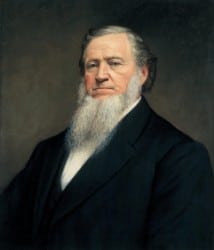
“No matter what your circumstances are, whether you are in prosperity or in adversity, you can learn from every person, transaction, and circumstance around you.”
LDS Quotes on Adversity

“No matter what your circumstances are, whether you are in prosperity or in adversity, you can learn from every person, transaction, and circumstance around you.”
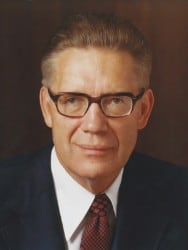
“We are to solve our own problems and then to counsel with the Lord in prayer and receive a spiritual confirmation that our decisions are correct.”
| “Why the Lord Ordained Prayer,” Ensign, Jan. 1976, 11.
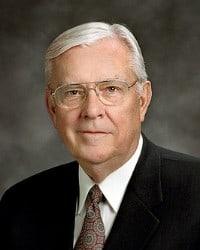
No matter how difficult the trail, and regardless of how heavy our load, we can take comfort in knowing that others before us have borne life’s most grievous trials and tragedies by looking to heaven for peace, comfort, and hopeful assurance. We can know as they knew that God is our Father, that He cares about us individually and collectively, and that as long as we continue to exercise our faith and trust in Him there is nothing to fear in the journey.
| “You Have Nothing to Fear from the Journey,” Ensign, May 1997, p. 59
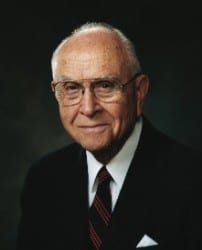
“Divorce can never really be final. How can mothers and fathers really divorce themselves from their own flesh and blood children, or from the memories of days and years of shared experiences which have become part of their very lives.”
| Marriage and Divorce

“Adversity should not be viewed as either disfavor from the Lord or a withdrawal of His blessings. Opposition in all things is part of the refiner’s fire to prepare us for an eternal celestial destiny.”
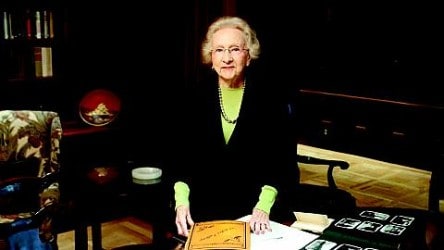
“It is not charity or kindness to endure any type of abuse or unrighteousness that may be inflicted on us by others. God’s commandment that as we love him, we must respect ourselves, suggests we must not accept disrespect from others. It is not charity to let another repeatedly deny our divine nature and agency. It is not charity to bow down in despair and helplessness. That kind of suffering should be ended.”
| Ensign, November 1991, p. 77
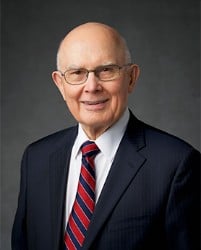
“We are often left to work out problems, without the dictation or specific direction of the Spirit. That is part of the experience we must have in mortality. Fortunately, we are never out of our Savior’s sight, and if our judgment leads us to actions beyond the limits of what is permissible and if we are listening to the still small voice, the Lord will restrain us by the promptings of His Spirit.”
| Teaching by the Spirit (address delivered at new mission presidents’ seminar, 22 June 1994), 8.
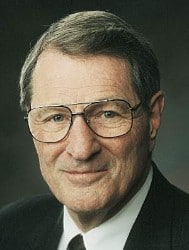
“…the strait and narrow path, though clearly marked, is a path, not a freeway nor an escalator. Indeed, there are times when the only way the strait and narrow path can be followed is on one’s knees!”
| A Brother Offended, Ensign, May 1982, 37
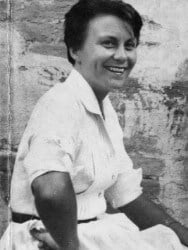
“Real courage is when you know you’re licked before you begin, but you begin anyway and see it through no matter what.”
| To Kill a Mockingbird

“Friends show their love in times of trouble, not in happiness.”
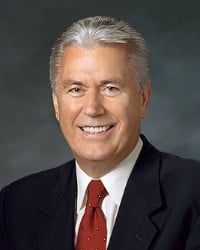
I testify that when we embark upon or continue the incredible journey that leads to God, our lives will be better. This does not mean that our lives will be free from sorrow. We all know of faithful followers of Christ who suffer tragedy and injustice–Jesus Christ Himself suffered more than anyone. Just as God makes the “sun to rise on the evil and on the good,” He also allows adversity to test the just and the unjust. In fact, sometimes it seems that our lives are more difficult because we are trying to live our faith. No, following the Savior will not remove all of your trials. However, it will remove the barriers between you and the help your Heavenly Father wants to give you. God will be with you. He will direct your steps. He will walk beside you and even carry you when your need is greatest.
| A Yearning for Home

| The Neal A. Maxwell Quote Book

One’s life . . . cannot be both faith-filled and stress-free. . . . Therefore, how can you and I really expect to glide naively through life, as if to say, ”Lord, give me experience, but not grief, not sorrow, not pain, not opposition, not betrayal, and certainly not to be forsaken. Keep from me, Lord, all those experiences which made Thee what Thou art! Then let me come and dwell with Thee and fully share Thy joy!” . . .Real faith . . . is required to endure this necessary but painful developmental process.
| “Lest Ye Be Wearied and Faint in Your Minds,” Ensign, May 1991, pp. 88, 90

“Obedience gives us greater control over our lives, greater capacity to come and go, to work and create. Of course, age, accident, and illnesses inevitably take their toll, but even so, our obedience to this gospel law enhances our capacity to deal with these challenges.”
| Obedience Brings Blessings, April 2013 General Conference
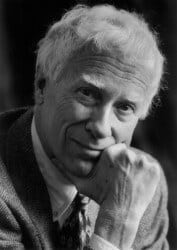
“Instead of explaining our suffering, God shares it.”
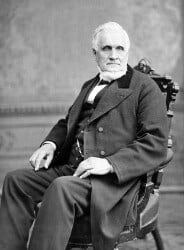
So far as I am concerned, I say, let everything come as God has ordained it. I do not desire trials; I do not desire affliction . . . but if . . . the powers of darkness are let loose, and the spirit of evil is permitted to rage, and an evil influence is brought to bear on the Saints, and my life, with theirs, is put to the test; let it come, for we are the Saints of the Most High God, and all is well, all is peace, all is right, and will be, both in time and in eternity.
| (John Taylor, Journal of Discourses, Vol. 5, 115-116)

“One speaker in Church directs, “You can’t do everything. Don’t run faster than you have strength”. The next says, “Push yourself. You can always do more.” One person advises, “Don’t worry about what you can’t do” at the same time someone else says, “You can do anything you put your mind to.” In one hymn we sing, “I need thee every hour,” and in another we sing, “We will work out our salvation”. In this world of mixed messages, I never can seem to escape the nagging though, “If only I were better organized or if only I tried harder.” Satan tempted Christ with the word, ‘if.’ He often comes to me with the words, ‘if only.’”
| The Continuous Atonement
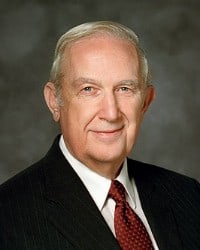
Your trust in the Lord must be more powerful and enduring than your confidence in your own personal feelings and experience.
To exercise faith is to trust that the Lord knows what He is doing with you and that He can accomplish it for your eternal good even though you cannot understand how He can possibly do it. We are like infants in our understanding of eternal matters and their impact on us here in mortality. Yet at times we act as if we knew it all. When you pass through trials for His purposes, as you trust Him, exercise faith in Him, He will help you. That support will generally come step by step, a portion at a time. While you are passing through each phase, the pain and difficulty that comes from being enlarged will continue. If all matters were immediately resolved at your first petition, you could not grow.”
| “Trust in the Lord,” Ensign, November 1995, p. 17
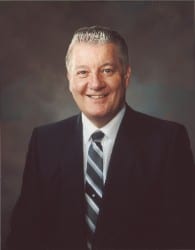
“Sometimes the Lord calms the storm, and sometimes he lets the storm rage and calms the child.”

“We need strength beyond ourselves to keep the commandments in whatever circumstance life brings to us. … The combination of trials and their duration are as varied as are the children of our Heavenly Father. No two are alike. But what is being tested is the same, at all times in our lives and for every person: will we do whatsoever the Lord our God will command us?”
| "In the Strength of the Lord," Ensign, May 2004, 17
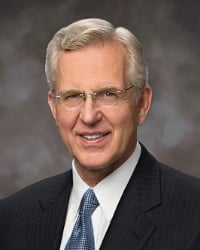
Exercising agency in a setting that sometimes includes opposition and hardship is what makes life more than a simple multiple-choice test. God is interested in what we are becoming as a result of our choices. He is not satisfied if our exercise of moral agency is simply a robotic effort at keeping some rules. Our Savior wants us to become something, not just do some things. He is endeavoring to make us independently strong – more able to act for ourselves than perhaps those of any prior generation. We must be righteous, even when He withdraws His Spirit, or, as President Brigham Young said, even “in the dark.”
| “Moral Agency” Ensign, June 2009, p. 53

A pebble held close to the eye appears to be a gigantic obstacle. Cast on the ground, it is seen in perspective. Likewise, problems or trials in our lives need to be viewed in the perspective of scriptural doctrine. Otherwise they can easily overtake our vision, absorb our energy, and deprive us of the joy and beauty the Lord intends us to receive here on earth.
| “Finding Joy in Life,” Ensign, May 1996

“Healing blessings come in many ways, each suited to our individual needs, as known to Him who loves us best. Sometimes a ‘healing’ cures our illness or lifts our burden. But sometimes we are ‘healed’ by being given strength or understanding or patience to bear the burdens placed upon us. …
“The healing power of the Lord Jesus Christ—whether it removes our burdens or strengthens us to endure and live with them like the Apostle Paul—is available for every affliction in mortality.”
| "He Heals the Heavy Laden," Ensign, Nov. 2006, 5–6

“Our needed conversions are often achieved more readily by suffering and adversity than by comfort and tranquillity. … Father Lehi promised his son Jacob that God would ‘consecrate [his] afflictions for [his] gain’ (2 Nephi 2:2). The Prophet Joseph was promised that ‘thine adversity and thine afflictions shall be but a small moment; and then, if thou endure it well, God shall exalt thee on high’ (D&C 121:7–8). Most of us experience some measure of what the scriptures call ‘the furnace of affliction’ (Isaiah 48:10; 1 Nephi 20:10). Some are submerged in service to a disadvantaged family member. Others suffer the death of a loved one or the loss or postponement of a righteous goal like marriage or childbearing. Still others struggle with personal impairments or with feelings of rejection, inadequacy, or depression. Through the justice and mercy of a loving Father in Heaven, the refinement and sanctification possible through such experiences can help us achieve what God desires us to become.”
| "The Challenge to Become," Ensign, Nov. 2000, 32
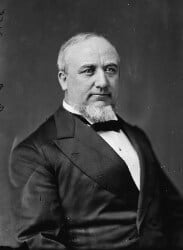
“No matter how serious the trial, how deep the distress, how great the affliction, [God] will never desert us. He never has, and He never will. He cannot do it. It is not His character [to do so]. … He will [always] stand by us. We may pass through the fiery furnace; we may pass through deep waters; but we shall not be consumed nor overwhelmed. We shall emerge from all these trials and difficulties the better and purer for them.”